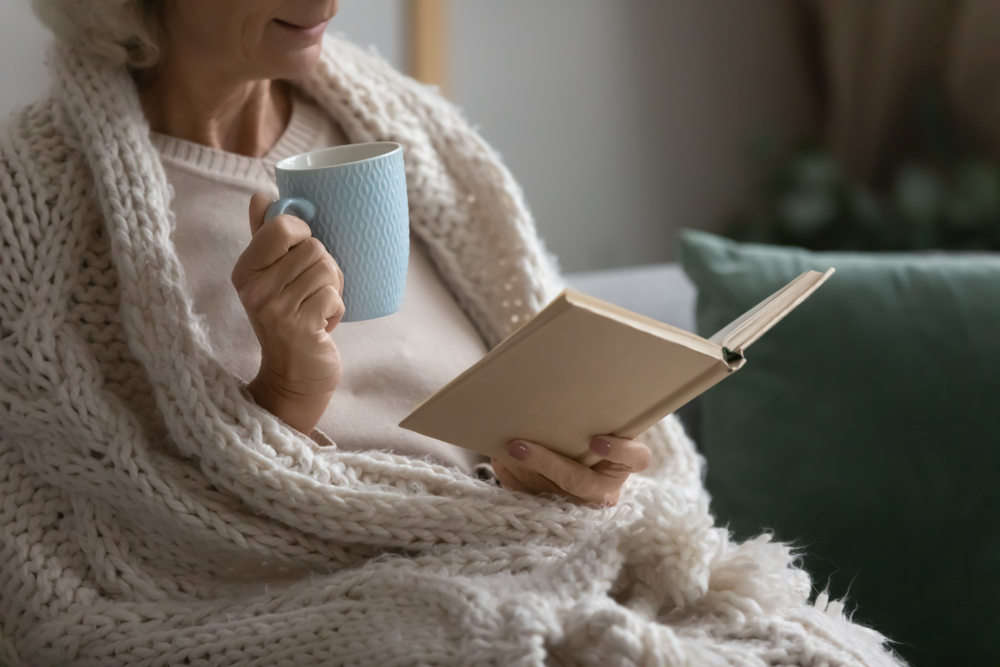Winter Safety Guidelines For The Elderly
During most summers, we experienced periods of scouring temperatures across the UK (even if this summer has been less than stellar). While it is glorious, these temperatures are the main reason for associated health hazards such as heat stroke, dehydration and sun damage. Safety guidelines advised us to keep hydrated and stay indoors between 11am to 3pm, which is usually the hottest time of the day.
As the seasons change, so do the safety guidelines. Just before we enter the winter months, cold weather can bring its own health hazards. People over the age of 65 and anyone with a long-term illness or a disability are the most vulnerable individuals to the effects of cold weather. In this article, we will discuss 5 winter safety guidelines for the elderly to keep in mind to prevent serious illness and ensure a safe winter.
1) Prepare The Home
Now is the perfect time to winterproof the home. This includes having the heating system checked and serviced by a professional, fixing any draughts from windows and doors and having the chimney sweeped to prevent soot buildup and prepare it for daily use over the winter.
Additionally, it’s important to test all the smoke detectors and carbon monoxide detectors as well as having the batteries replaced if needed, they are extremely effective at detecting fires and carbon monoxide fumes in the home. It’s also worth having an emergency kit in case of power outages. A battery-operated flashlight and radio as well as a power bank, first aid kit and extra batteries and clothes are some items to include in an emergency kit.
2) Keep Warm
It’s essential to dress appropriately for cold weather. As we age, our immune system decreases. Wearing extra layers of clothing can prevent catching frostbite or hypothermia. Frostbite is damage to the skin when exposed to extremely cold temperatures. Symptoms include cold and pale skin, followed by inflammation and numbness.
On the other hand, hypothermia occurs when an individual is exposed to extremely cold temperatures for an extended length of time, leading to a dangerous drop in body temperature. Symptoms may include cold pale or ashy skin, exhaustion, drowsiness, confusion, shivering and slow breathing. If you notice any of these symptoms, stay inside, keep warm to regulate body temperature and call 111 for medical assistance if symptoms are concerning.
3) Stay Updated On Vaccinations
As we age, our immune system decreases, so it’s important for elderly people to stay updated on their COVID-19 boosters (if they are invited) and flu vaccines for extra protection against serious illness. For most people, head colds and the flu come and go, but for elderly people, it could be life threatening. The flu vaccine should be given once a year. Although the flu can be caught at any time during the year, it is mostly common in the winter. The best time to get the flu vaccine is during the autumn, before flu activity peaks.
4) Take Care When Outdoors
Many elderly people go for a walk as part of their daily routine, whether that is to the shops or to visit a relative or a friend. However, footpaths can be slippery after frosty conditions. It is best to avoid slippery areas to prevent slips and falls. As we age, our bone density decreases, meaning elderly people can fracture a bone more easily.
Many elderly people are still capable of driving, but extra caution should be taken during the winter. Avoid driving during storms, harsh winds and snow and frosty weather. Roads can be icy and slippery after frost, making them extremely dangerous to travel on. Wait until the roads have been salted or the ice has melted before heading out. Otherwise, arrange for someone else to drive if it is absolutely necessary.
5) Check On Elderly Neighbours And Relatives
If you have an elderly neighbour or relative in mind, it’s important to check on them regularly during the winter. For some elderly people, living alone can feel isolated and if they experience hypothermia or the flu, they may feel too unwell to get medical assistance themselves, as such, their symptoms can become worse. Whether it’s calling for a cup of tea and a chat, doing their groceries for them or preparing their meals, it can make a huge difference to their overall health and wellbeing.
Get Professional Help From Hands On Care
If you are finding it difficult to keep on top of these safety guidelines, it might be worth considering professional home care from Hands On Care. We understand that life can be busy and family members may not be able to take care of their elderly relatives on a full-time basis. We offer short-term and long-term personal home care plans according to your loved one’s needs. From check-in visits for companionship needs, to full day visits including cleaning, cooking, assisting with outings, medicine management and more. Our fully qualified team of carers are very friendly and dedicated to the needs of their elderly clients.
If you are looking for high-quality home care this winter, please get in touch today by submitting an online enquiry, calling us on 01952 743490, or emailing us on info@hands-on-care.co.uk. We look forward to hearing from you and discussing your home care needs.

